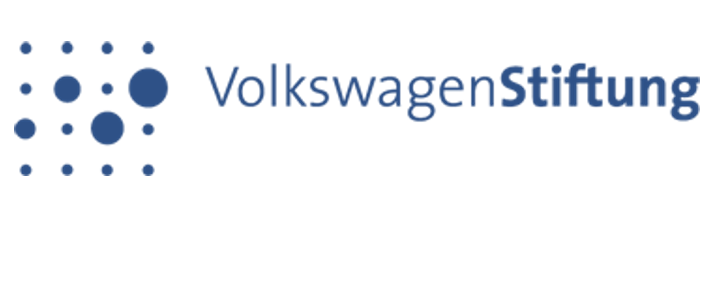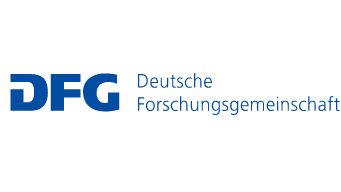Active third-party funding
Obstacles to Modernization in the Economy and Science of the GDR (Mod-Block-DDR)
Duration: 2018 to 2025
Employee: Prof. Dr. Björn Jindra, Dr. Moritz Hennicke, Dr. Ann Hipp, Prof. Dr. Paul Hünermund.
The joint project “Obstacles to Modernization in the Economy and Science of the GDR” has been selected for funding through the Federal Ministry of Science and Education and will start on December 01, 2018. The overall objective of the joint project is to identify the obstacles to modernization in the state socialist economy and science system of the GDR, to analyse their effects on the past real economic development as well as the impact on socio-economic disparities between East and West Germany until today. The empirical analyses will include inner-German comparisons as well as comparisons to neighbouring countries in Central and Eastern Europe. The project runs for a total of 6 years (first and second funding phases).
The joint project is divided into seven interrelated subprojects and involves partners at the Technical University of Berlin, the Friedrich Schiller University of Jena and the European University Viadrina Frankfurt/Oder. Thus, for the first time in a multi-year joint project, a common object of knowledge is being worked on by means of historical, sociological, political science and economic approaches in order to comprehensively analyze the modernization deficits of the GDR and their consequences. A focus of the project network is the promotion of young academics, with doctoral and post-doctoral theses emerging from the project work. In addition to the BMBF-funded partners, the Chair of Economics, especially Institutional Change, at the University of Bremen is a close and permanent cooperation partner of the network, which complements the analyses for the GDR and neighboring countries in East Central Europe with comparisons to the Soviet Union and Russia.
Contact: Dr. Ann Hipp


Studies on the hydrogen economy in Bremen - hyBit (Hydrogen for Bremen's industrial Transformation)
Duration: 2022 to 2026
Project financed Staff: Jessica Birkholz (scientific employee), Philip Kerner (scientific employee)
In this project, an interdisciplinary team of natural, technical and economic scientists is investigating the industrial transformation of Bremen towards a hydrogen economy. The goal of the project is the development and design of a hydrogen hub in Bremen and the region.
Hydrogen is considered a promising technology to drive the transformation towards a climate-neutral and sustainable Europe. This project investigates how a hydrogen economy can contribute to climate neutrality through targeted technical, economic, ecological, legal and social design.
The transformation of economic structures towards a hydrogen hub requires deep understanding of the dynamics in technology development pathways, as well as in the narratives and uncertainties associated with the new technology. The working group "Innovation and Structural Change" participates in the project by analyzing different data sets using multivariate statistical methods and machine learning approaches.
The project is a joint project funded by the BMBF. The coordination of the project is done by the department for Resilient Energy Systems. The project is funded under the title "Hydrogen for Bremen's industrial Transformation (hyBit)" for 42 months. Project partners include the Wuppertal Institute, the Bremen Institute for Production and Logistics (BIBA) at the University of Bremen, Fraunhofer-IFAM (Bremen), Fraunhofer-ICT (Karlsruhe) and Bremen University of Applied Sciences, as well as other key players in Bremen's industry such as Arcelor Mittal Bremen, swb and BLG. Eleven working groups from the technical sciences, humanities and social sciences are represented at the University of Bremen.
Contact: Jessica Birkholz & Philip Kerner
Postdoc-Network "Learning (from) Transformation"
Laufzeit: 2022 bis 2023
We live in times of global challenges. These challenges such as climate change, resource scarcity and pandemic threat have become too ubiquitous to be solved through minor innovation processes. Therefore, the call for transformation in the sense of disruptive, pathbreaking changes has become vital. At the end of the 20th century, post-socialist countries have experienced a radical transformation. The radical system change was conducted by shock therapy in many countries, such as the GDR, the Czech Republic, and the Baltic countries. We are only beginning to understand the long-term consequences of this historically unique event, not to mention the lessons learned for today. This is where the Postdoc-Network "Learning (from) Transformation" comes in. We aim to bring together economists, historians, political scientists, sociologists, and colleagues from any further discipline from the University of Bremen and its affiliated institutions to discuss the above (and related) questions.
The network is financially supported by BYRD - Bremen Early Career Researcher Development, the center for young researchers at the University of Bremen.
Contact persons

New wave of migration on the background of the Russian invasion of Ukraine. Social and economic consequences for Ukraine and for Poland: statistical analysis and prospects
Duration: 2022 to 2023
Financed through the project: Dr. Svitlana Chugaievska
This project examines the social and economic consequences of recent migration movements against the background of the Russian invasion of Ukraine. The focus lies on the consequences for Ukraine itself as well as for Poland. Overall, the analyses cover the period of the last 10 years, during which increased migration flows have been observed. The focus is on comparisons over time and the socio-demographic characteristics of migration that vary over time. Statistical methods and forecasting techniques (models, scenarios) are applied.
Svitlana Chugaievska is an Associate Professor of the Department of Mathematical Analysis, Business Analysis and Statistics and Head of the Scientific Centre of Statistical, Sociological and Economical Research at Zhytomyr Ivan Franko State University, Zhytomyr, Ukraine
Contact: Dr. Mariia Shkolnykova
Resilient transformation pathways of a regional hydrogen economy - hyTracks
Duration: 2020 to 2023
Project funded employee: Susanna Bolz (PhD candidate)
In this project, an interdisciplinary team of technical scientists, computer scientists and economists will develop a modeling approach to accompany transformation processes. The aim of the project is to develop possible transformation paths to a regional hydrogen economy using the example of Bremen's industrial port. To this end, socio-economic interrelationships will be investigated and transformation paths along the hydrogen value chain will be developed with the involvement of stakeholders. Approaches from innovation research, agent-based models and energy system models will be combined. The project focuses on the holistic modeling of these linkages and the use of a participation platform. The interactive platform will allow to visualize the systemic effects of decision processes and measures interactively. Thus, participatory processes and stakeholder engagement will be reinforced for the design of transformation pathways.
Profound transformation processes require the willingness to cooperate and acceptance in society as well as accompanying policy measures and a precise understanding of the system interrelations. To explore these aspects, from the economics side linkages of economic actors and sectors are investigated as well as the relevance of technology networks. Among other things, the insights gained will go into stakeholder workshops using the BreLAB to make the quantitative findings better interpretable and usable. From the informatics and technology science side, the technological interrelationships along the value chain will be investigated and the programming of the participation platform will be carried out.
The project is a joint project in cooperation with the working group "Resilient Energy Systems" of the Department of Production Engineering of the University of Bremen (coordination) and the "Digital Media Lab" of the Department of Mathematics and Computer Science of the University of Bremen. The project is funded by the German Federal Ministry of Education and Research under the title "Development of a Stakeholder-oriented Interaction Platform for the Design of Resilient Transformation Pathways of a Regional Hydrogen Economy (hyTracks)" for 36 months.
For more information click here
Contact: Dr. Tobias Wendler

DFG Network "The Dynamics of Innovation Systems: Perspectives, Influences and Operationalization"
Duration: 2022 to 2024
The scientific network "The Dynamics of Innovation Systems: Perspectives, Influences and Operationalization” is funded by Deutsche Forschungsgemeinschaft during the period from 2022 to 2024.
The network aims to facilitate research exchange on innovation systems and to develop an understanding of their influence and operationalization. It consists of 18 members from 14 academic institutions, including six international partners from the UK, Norway, Denmark, the Netherlands and Switzerland. The network brings together a wide range of expertise on different types of innovation systems, linking economists with political scientists, geographers and engineers.
The project will include several working meetings and two international conferences to be held in Bremen, Göttingen, Braunschweig and Jena.
Contact: Dr. Ann Hipp
Investigations on CO2 storage at ocean crust rocks - AIMS3 (Alternate scenarios, Innovative technologies, and Monitoring approaches for Sub-Seabed Storage of carbon dioxide)
Duration: 2021 to 2024
Project funded employee: (from 2023): Melanie Dunger
In this project, an interdisciplinary team of natural, technical, and economic scientists will investigate the potential of carbon capture and storage (CCS) in ocean crust rocks. In particular, the efficiency of this storage method as well as its long-term safety has not yet been clarified and will be investigated. CCS is considered a promising technology to meet the climate targets of the Paris Agreement. Within this project, natural, technical and socio-scientific aspects of the potential and feasibility of this storage method will be analyzed.
New technologies and especially interventions in nature require a high degree of acceptance in society. Especially with regard to possible political measures, a precise understanding of the societal acceptance is just as crucial as an understanding of the costs and benefits. The working group "Innovation and Structural Change" is involved in the project by conducting a survey study as well as so-called 'citizens-jury' workshops in order to gain insights into the acceptance of this technology among the population. In addition, the economic and ecological advantages and disadvantages will be quantitatively analyzed within the framework of a cost-benefit analysis.
The project is a joint project within the framework of the German Alliance for Marine Research (DAM), is funded by the BMBF and coordinated by the MARUM. The project is funded under the title "Alternate scenarios, Innovative technologies, and Monitoring approaches for Sub-Seabed Storage of carbon dioxide (AIMS3)" for 36 months. Members of the consortium are the University of Bremen, GEOMAR Kiel, Fraunhofer IPM Freiburg and Sea&Sun Technology GmbH.
For more information click here
Contact: Melanie Dunger

